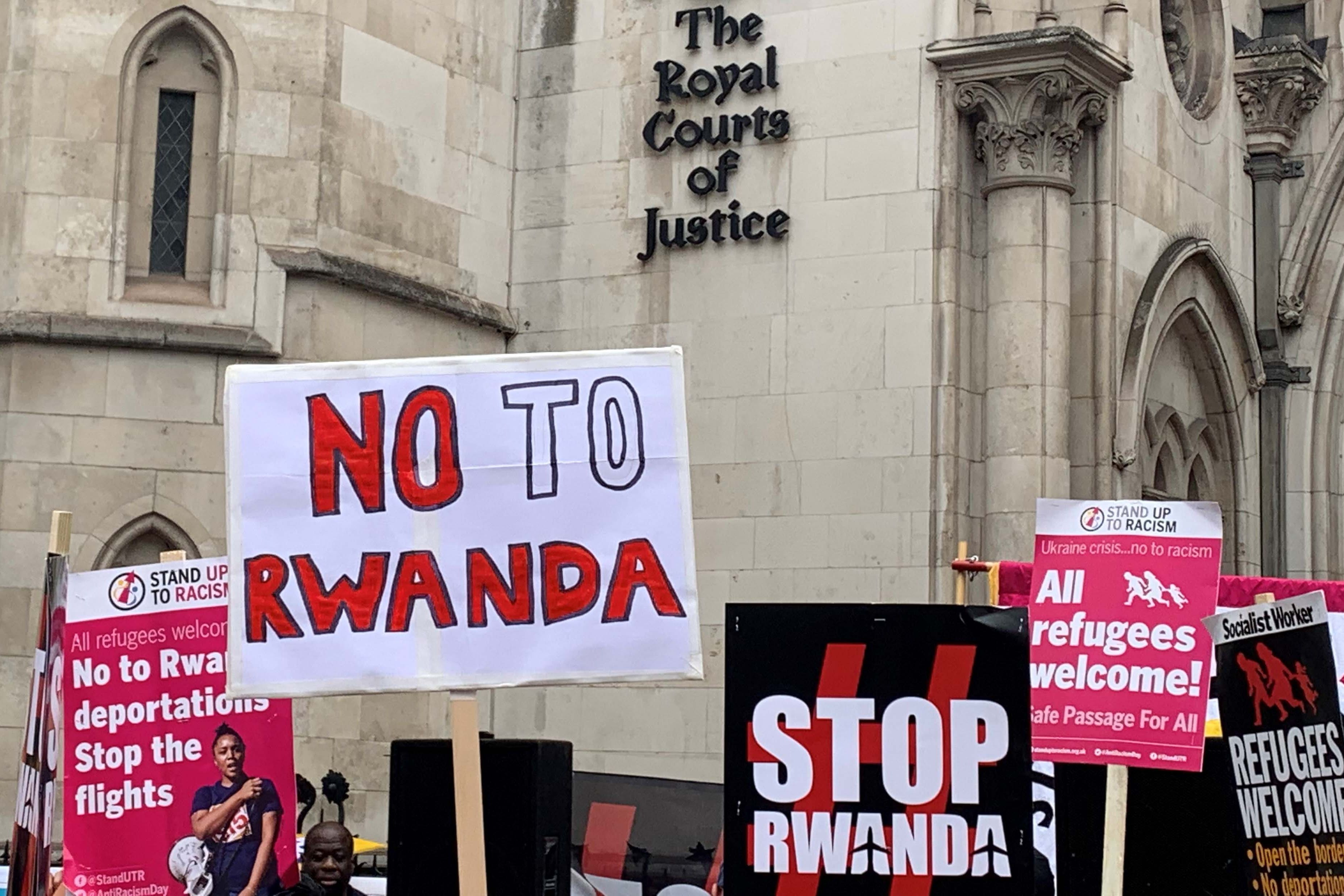What happens next with plans to deport people to Rwanda?
The Court of Appeal has ruled the Government’s plan to deport migrants to the African country is unlawful.

Campaigners and ministers remain locked in a legal battle over the Rwanda deal in the wake of the latest court ruling.
The decision, in favour of several asylum seekers and a charity fighting against the Government policy, was largely seen as a surprise but by no means signals the end of the court case.
– What happened?
The Court of Appeal ruled the Government’s plan to deport migrants to Rwanda is unlawful amid concerns over the east African nation’s asylum system.
In a majority decision, judges overturned an earlier High Court ruling that said Rwanda could be considered a “safe third country”.
The Government said it will seek to appeal against the ruling, with Prime Minister Rishi Sunak saying he “fundamentally” disagrees with the decision.
This was echoed by Home Secretary Suella Braverman, who said she is “fully committed” to the policy.
– Haven’t we heard this before?
Sort of. This is just the latest stage in a long running series of legal challenges.
The first deportation flight – due to take off on June 14 last year – was grounded following a series of objections against individual removals and the policy as a whole, including last-minute rulings from the Court of Appeal and European Court of Human Rights.
Eight asylum seekers, along with charities and the PCS union, brought legal action against the plans to give people one-way tickets to Rwanda and the case was heard by the High Court, which handed down its judgment in December.
The case was then considered by the Court of Appeal after hearings in April, with judges delivering their ruling on Thursday.
– How will this affect the Government’s efforts to curb Channel crossings?
Thursday’s judgment throws into doubt a key aspect of the Prime Minister’s pledge to stop migrant boats crossing the Channel and reducing the number of people seeking asylum in the UK.
It will add to already mounting delays to the Government’s plans to send migrants to Rwanda as it means no flights can be scheduled until the outcome of further court proceedings, or until changes to the asylum system in Rwanda are made as directed in the latest court ruling.
– Has the Government spent money on the policy so far?
Yes, Britain has already paid Rwanda £140 million under the deal, Home Office permanent secretary Matthew Rycroft previously confirmed.
The department also reportedly spent £163,000 on then home secretary Priti Patel’s trip to the capital Kigali to announce the deal, as well as at least £22,000 on trips for officials to discuss the agreement.
A further £300,000 was spent on the first deportation flight which was grounded amid legal challenges, the Times newspaper said.
Additional costs – like legal fees, staffing and other resources, as well as the cost of Ms Braverman’s first visit to Rwanda as Home Secretary earlier this year – are yet to be disclosed.
– What does the Rwandan government think?
A spokeswoman for the administration said it takes “issue” with the Court of Appeal’s ruling, adding: “Rwanda is one of the safest countries in the world.”
Yolande Makolo said: “Rwanda remains fully committed to making this partnership work. The broken global migration system is failing to protect the vulnerable, and empowering criminal smuggling gangs at an immeasurable human cost.
“When the migrants do arrive, we will welcome them and provide them with the support they’ll need to build new lives in Rwanda.”
– What happens next?
Any appeal against the Court of Appeal’s decision could potentially go to the Supreme Court.
If the Government does seek an appeal to the Supreme Court, the first step will be to ask for permission to appeal – a preliminary step based on whether a potential challenge is “arguable”.
Under the rules of the UK’s highest court, Home Office lawyers will first need to ask the Court of Appeal for this permission, and if refused they are then given the chance to ask the Supreme Court directly.
Supreme Court challenges typically also require that the case involves a point of law of “general public importance” to be identified.
The rules of the Supreme Court say there is a 28-day time limit on asking for permission to appeal in the majority of civil cases, though this can be extended.
Announcing the Court of Appeal’s decision, the Lord Chief Justice Lord Burnett said there is a “deliberately tight timetable” to deal with the consequences of the judgment, in part so any appeal bid “can be decided promptly”.
If the Government is given the go ahead to bring a Supreme Court challenge, lawyers for both sides will appear before up to five justices at the court in Westminster, with a further decision in writing to follow.
Any decision at the Supreme Court may then be challenged at the European Court of Human Rights, although whether that happens in this case remains to be seen.
